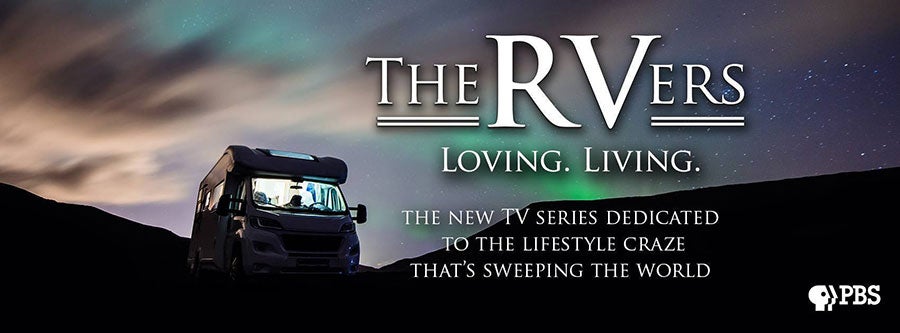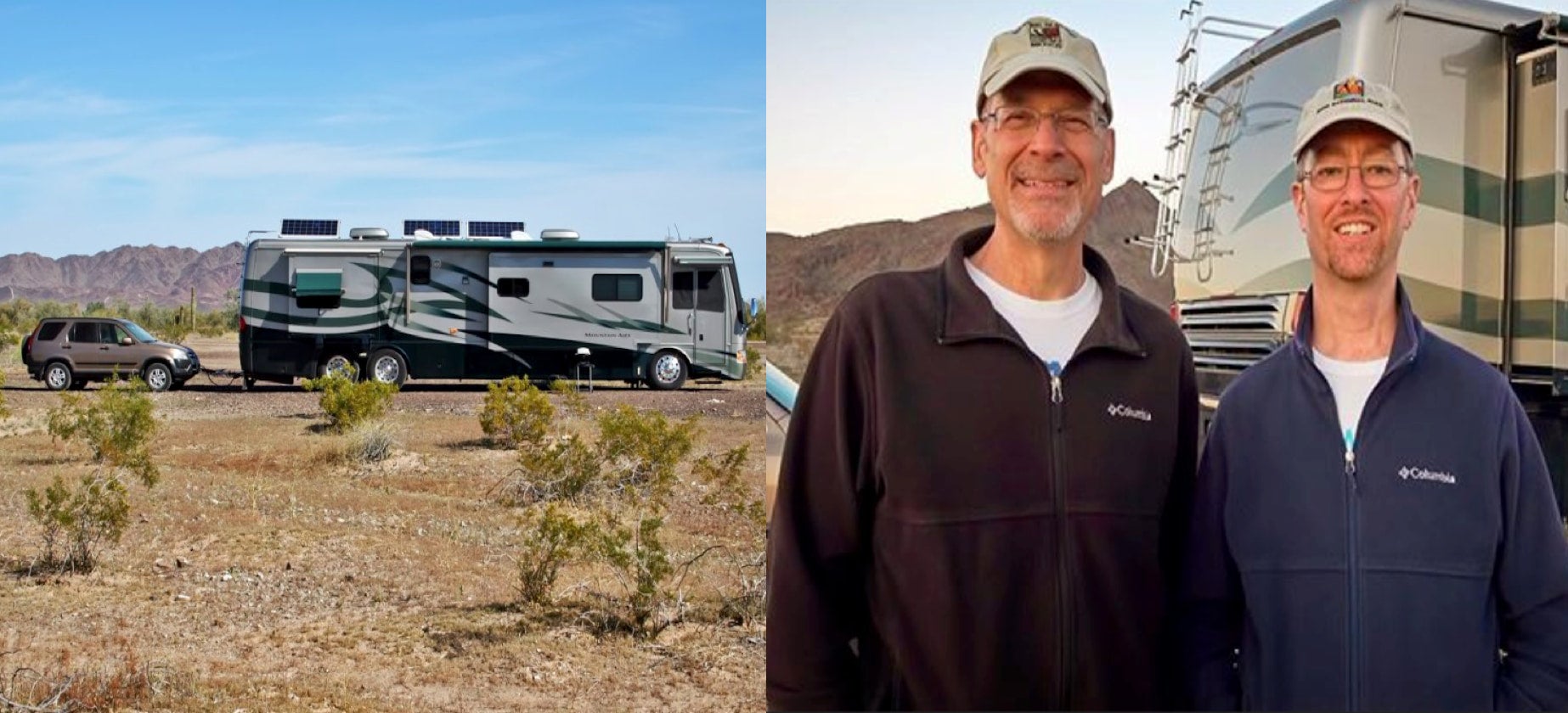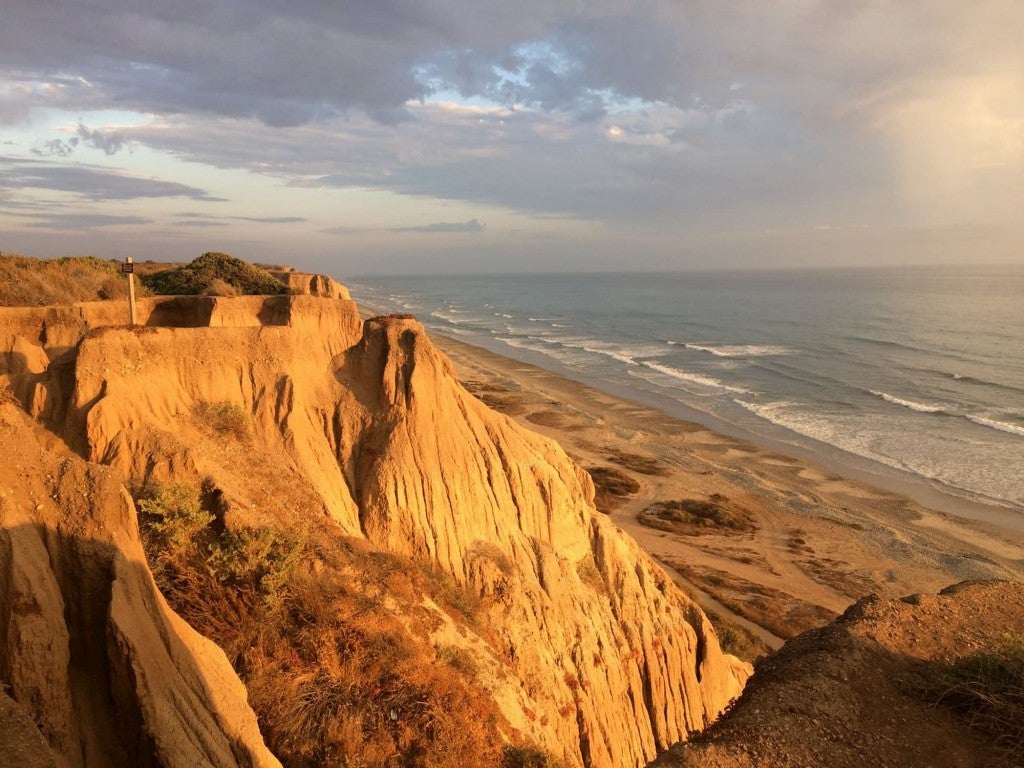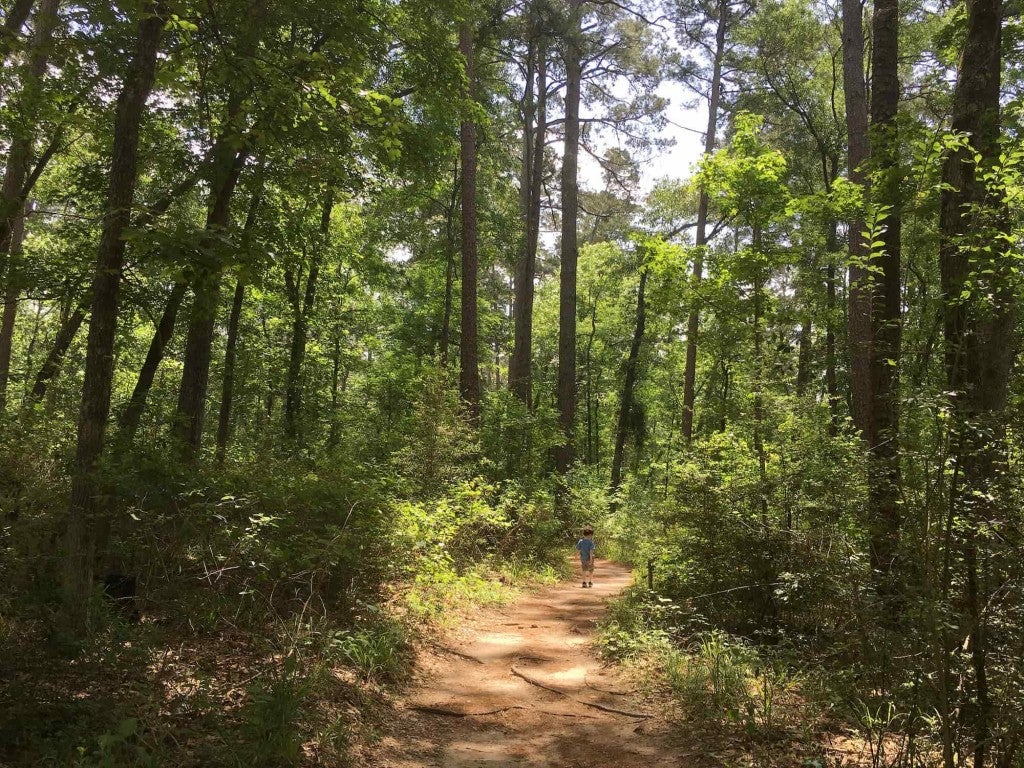When Peter Knize and John Sullivan moved into their RV in 2003, their lives pivoted from office desks and housework to fresh air and the open road, daily. Through more than 15 years of exploration, successes and challenges, John and Peter turned their life experiences into the RVGeeks; a blog, video series and general how-to guide for the RV life.
Their DIY ethos and experience online has lead to the production of The RVers, an upcoming television show hosted by John, Peter, and a number of other full-time RVers who will share an inside look at living and working on the road full-time. We talked to Peter and John about the start of the RVGeeks, their work/life balance, and the upcoming show.
The RVGeeks on DIY Living & Working on the Road
View this post on Instagram
The Dyrt: When did you two first move into an RV and what was the motivation behind that?
RVGeeks: We pulled away from our last “sticks & bricks” house on April 11, 2003, and have been on the road full-time ever since. Like many people, a combination of factors led us to walk away from the traditional lifestyle of a fixed-location home and “nine to five” jobs.
Two of the primary factors were Peter’s surviving cancer at age 37, followed three years later by the loss of his younger brother, coincidentally at age 37. Those experiences combined to remind us how short, and precious, life can be, and how important it is to live life fully while we have the chance.
Can you each tell us a little bit about yourselves prior to “RV life”?
Like many people, we were raised with the idea that dedicating ourselves to 40+ years in traditional careers would lead to a relaxing retirement. We worked typical corporate jobs—most recently with Peter in sales & marketing, and John in information technology—eagerly anticipating our two short weeks of vacation each year.
Prepare for your next adventure by downloading maps. The Dyrt Pro lets you download maps and campgrounds without cell service. “My alternative to using pro would be to drive back out to cell service”.
What was the biggest challenge in the first month you lived on the road?
We were so excited to be on the road, and free from schedules for the first time in our adult lives, that we can’t recall feeling challenged at all. We were elated!
If anything could be called a “challenge” it would probably be learning how to manage the systems on our motorhome, since we’d never RVed before. But even that was (mostly) a fun learning experience, although not the same as today, since there weren’t really any blogs or videos available back then. It was so long ago that we hit the road that the first iPhone was still four years away!
Taking the time to learn what works for them, and what doesn’t, from their first ownership experience is invaluable in determining what RV will be best for the long haul.
Can you offer some advice on sharing living space with a co-pilot while living in an RV?
Of course that depends on the relationship. If by “co-pilot” you mean spouse/partner, we think it depends on the couple and the nature of their relationship. We’re not only married, but also business partners, having created and now running our website design business together since 2007. The ability to live and work together 24/7/365, even in a larger home, requires a good dynamic.
Whenever we’re asked how we live and work in such a small space without killing each other, we always think that the question itself is more a reflection on the person asking than on us! We’ve been together for more than 23 years, and that first seven, prior to RVing, were a good indicator to us that we’d be compatible on the road.
We’ve almost never fought about much of anything. And even what we might consider a “fight” would probably be seen by most people as nothing more than a minor disagreement.
If we had to offer one piece of advice, it would be to learn to be okay with being in the same room without feeling that you have to interact all the time. We can be together and alone at the same time, allowing us to pursue our own work or interests independently.
What type of RV do you drive and why did you choose that model?
For the past 14 years, we’ve owned a 2005 43′ Newmar Mountain Aire—well, we own most of it, with the bank owning the rest!
We started off with a 2002 39′ Fleetwood Bounder Diesel, which we owned for 2 years. Our experience with that first rig taught us a lot about what we really wanted and needed in an RV. We always suggest that new RVers should follow the adage about not buying their last RV first. Taking the time to learn what works for them, and what doesn’t, from their first ownership experience is invaluable in determining what RV will be best for the long haul.
After our first 2 years in our Bounder, we custom-ordered our Newmar with exactly what we wanted on it… which is why we’ve been so happy with it for such a long time. That said, our next RV will likely follow our other standard guidance to new RVers, which is to buy the smallest RV you think you can be comfortable in. As much as we love our rig, we would ideally chop off about 8′ of length, and go with something in the 35′ range next time. Having all of this space has been great, but we’d like to be able to more easily get into smaller sites in places such as National Park and National Forest campgrounds.
As RV experts who offer lots of helpful advice on YouTube, what is the most common question you receive?
View this post on Instagram
Probably “Which RV should I buy?” Which is a very difficult question to answer. Besides the major choice between towable and motorized, and all the permutations within those categories, it’s all about floorplan, floorplan, floorplan.
It depends so much on your living situation, how many of you there are, where you like to go, whether you full-time or RV on weekends, and what your budget is. It’s too personal for us to make a decision for anyone else, and too complicated a question for us to tackle for each individual.
That said, buy the smallest RV you think you can be comfortable in!
How can someone who is thinking about moving into an RV better prepare themselves to understand basic maintenance themselves?
While having technical training is a nice bonus for anyone planning to RV, we have none ourselves… and that hasn’t stopped us from managing lots of tasks and projects. If you’re the least bit handy and confident, you can learn to manage your own systems, and tackle many maintenance, repair and upgrade projects yourself.
We started our YouTube channel to help friends who had just purchased their first RV. Our videos, and many others like them, are a great resource for anyone wanting to learn more about nearly any RV-related task. Since we didn’t have access to those sorts of things when we started RVing, we often like to say that we learned things the hard way so that others don’t have to!
“Whether part-time, or full-time, RVing is something anyone can use as a means to live life more fully.”
Where is your favorite place to go camping in your RV?
We prefer scenic, remote places. So learning to camp off the grid was important for us. Managing power and water resources properly lets us take our rig out into the boondocks for fairly long periods. Our 105 gallons of fresh water, and 65- and 45-gallon gray and black tank capacities, respectively, allow us to comfortably live just about anywhere for up to 2 weeks. That includes cooking, washing dishes and both showering every day. Of course equipping an RV with a suitable bank of house batteries, solar panels, and/or a generator is all part of the deal for anyone wanting to RV off-grid for any length of time.
Tell us about the upcoming show! How do you feel about sharing your journey with a much bigger audience?

We’re pretty excited about The RVers! Production on the first season is going strong, with shooting well underway. When Anthony Nalli, the producer, reached out to us about hosting, we jumped at the chance.
Knowing his history as the producer of The Aviators gave us a great deal of confidence in this new show. Not only is Anthony’s track record incredibly successful (The Aviators, currently in its 8th season, is the most-watched aviation series on TV), but we know that he does real TV, not reality TV.
We can’t wait to bring a new audience into our RVing world, and we’re also excited to have our current viewers get to see us make the leap from YouTube to broadcast television.
What do you think will surprise audiences about The RVers?
Since all of us hosting the show (Anthony, Cherie & Chris of Technomadia, Tom & Caitlin Morton of Mortons on the Move, and of course ourselves) are full-time travelers, we hope people will be surprised to see that we’re just regular, ordinary people, a lot like them. Besides sharing our lives online, and now on TV, we’re not doing anything different than most RVers. Whether part-time, or full-time, RVing is something anyone can use as a means to live life more fully.
What is your favorite video that you’ve produced together so far?
That’s an easy one—How to Drive a Motorhome: Off-Tracking & Rear Overhang. With most of our videos covering DIY and how-to maintenance and repair topics, we always say “We’re not professionals, and you don’t have to be either.” But this was one of those times when that disclaimer wasn’t required. In a previous career, Peter was both a tour bus driver, and the Safety & Training Manager for one of the largest tour bus companies in North America. He has literally trained hundreds of professional motorcoach operators, and is particularly proud of this video, and how positively it’s been received by the quarter-million people who’ve watched it.
What are 3 quick tips you can offer to someone who is seriously considering living or traveling extensively in an RV, but feels kind of clueless?
1. PLAN! We hit the road with no plan, other than to drive away from our old lives. We researched poorly, and only ended up with a good choice of starter RVs through good luck. We had no plan for where to go, how to earn a living, or how long we’d be on the road. Don’t get caught up in analysis paralysis, but use the many resources out there to plan a bit before diving in.
2. Don’t be afraid of the unknown. If you find yourself feeling like something is missing in life, don’t wait for a crisis or tragedy to trigger a change. Life is short, and the more of it that makes us happy, the more worth living it becomes. Our only regret is that we didn’t start RVing sooner!
3. Try before you buy. Never RVed before? Not sure about this whole living on the road thing? Try renting. While traditional rental companies are of course available, the sharing economy has led to several AirBnB-like options for renting an RV from private individuals. It’s a great way to get your feet wet without shelling out too much money right up front. And with the variety of RVs available to rent, you can get a good feel for the things that work for you… and what doesn’t! That will make your first RV purchase that much closer to being “perfect” from the get-go!
The Dyrt is the only camping app with all of the public and private campgrounds, RV parks, and free camping locations in the United States. Download now for iOS and Android.Popular Articles:
Articles on The Dyrt Magazine may contain links to affiliate websites. The Dyrt receives an affiliate commission for any purchases made by using such links at no additional cost to you the consumer.



